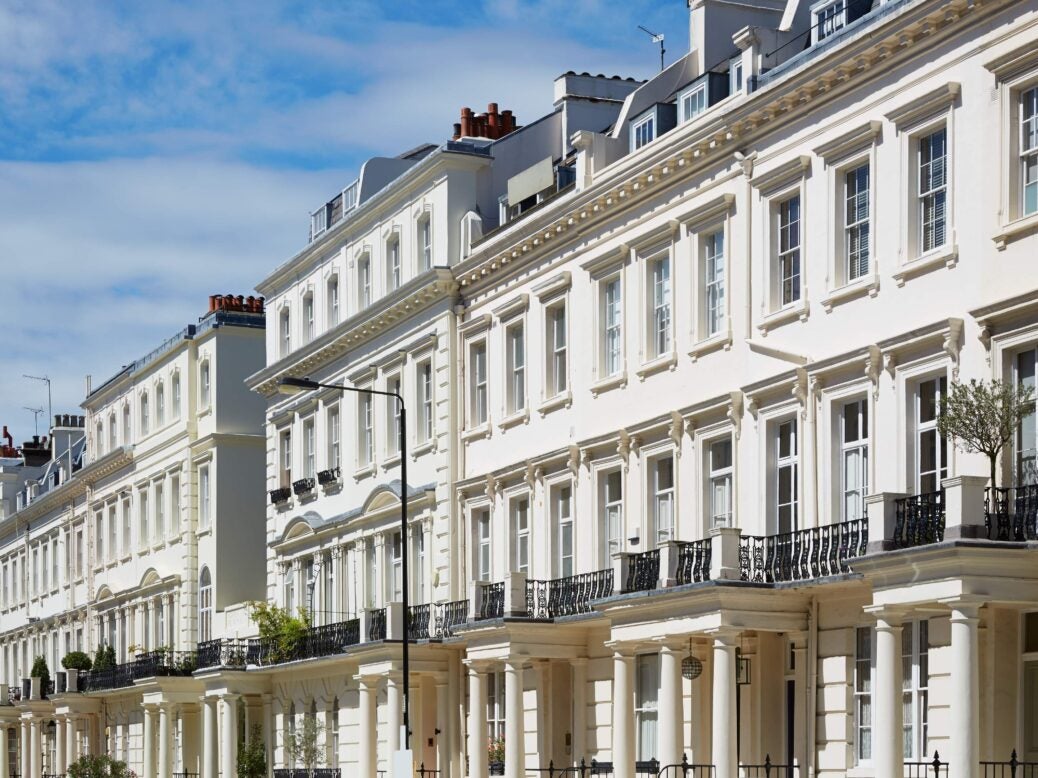
Analysis of similar attempts to slow runaway house prices suggests raising stamp duty on foreign buyers in the UK will miss its mark, writes Kath Swindells.
In early April, Canada announced a two year ban on real estate purchases by foreign buyers in an effort to cool a rapidly overheating property market which had jumped 20% over the past 12 months.
In Britain, the government is tackling inflated property prices with the introduction of a two per cent stamp duty surcharge on foreign buyers. But will these measures really lower housing prices, and at what cost?
In the first half of 2021, the share of homes sold to international buyers in Prime Central London fell by 13 percentage points down to less than a third (31%). Meanwhile the proportion across all of Greater London fell by six percentage points to around a fifth (21%).
In Greater London that proportion continued to decline in the second half of 2021, likely due to the end of the stamp duty holiday which exposed foreign buyers to the surcharge’s full effect. However in Prime Central London, the proportion of overseas buyers rebounded, likely showing that the wealthier buyers of these areas were not deterred by the 2 percent extra tax.
But whatever effect the surcharge may have had, it hasn’t impacted property prices. In fact between May 2021 and June 2021, prices jumped by 4.1%, higher than any monthly jump seen in the past decade.
In February 2022, the average property price in London was £530,000, 8 per cent higher than a year before. The reason the surcharge hasn’t made much difference, says Kate Everett-Allen, head of international residential research at Knight Frank, is that the price increases over the past few years weren’t driven by international buyers.
“The pandemic boom and the race for space over the past two years was largely domestically-driven, because most cross-border transactions were halted by the travel ban,” she says.
The UK is far from the first country to bring in a measure like this: in fact Canada’s recently-announced ban on foreign buyers follows years of state-level taxes. In early 2017, Toronto saw a period of rapid growth in house prices: between December 2016 and April 2017, the average house sale price grew by 28 per cent. So in April 2017, the state of Ontario put a 15 per cent tax on the purchase of residential property by non-residents and foreign corporations.
A report by Canadian real estate company Baker Inc. tracked buyers across their residences. They found that in 2013-2016, non-Canadian buyers accounted for 6 per cent of units purchased in both Ontario and Quebec. In 2017-2020, after the Ontario tax was brought in, this balance shifted almost entirely towards Quebec, showing the tax did have a clear impact.
However, the report says, there is ‘little evidence in early 2017... that foreign buyer activity was out of control in Toronto,’ making up just 2% of Ontario purchases in the first four months of 2017, before the tax.
And what was the impact on house prices? In the immediate aftermath of 2017’s foreign buyers tax, house prices in Toronto did fall. But, by 2018, the Toronto housing market had returned to its pre-spike trend.
Similarly, in February the average house price reached $1.18 million - a jump of 15 per cent from the previous December, and a 36 per cent rise from December 2020. But even though the ban hasn’t yet come into effect, Everett-Allen says there were already signs that the market was starting to cool in Canada’s major cities, with prices and sales slowing.
In March 2022, the average sale price in Toronto fell by 2.2 per cent compared to February.
Ben Myers, a real estate consultant and analyst in Toronto and an author of the Baker report, says that rising prices are much more to do with lack of supply and low interest rates, as well as recently the changing preferences caused by the pandemic. Blaming foreign buyers, Myers argues, is a political tool without much factual basis.
“There has been much discussion about the rapid increase in house prices in Vancouver and Toronto over the last 20 years, so it became common to blame foreigners for the increase, especially Asians as they are large minority groups in both markets,” he says. “Instead of blaming NIMBYs and other politicians that vote against new housing, they point to the "new guy" which is a tried and true tactic.”
So Myers says, the effectiveness of this ban will be more psychological, as people overestimate the prevalence of foreign buyers, and underestimate the impact of rising interest rates.
Another example is New Zealand. When strong restrictions on foreign buyers were introduced in 2018, the number of international buyers immediately dropped by three-quarters.
But, much like Canada, foreign buyers accounted for less than 5 per cent of property sales in New Zealand before the ban. Without being matched by a concerted effort to increase housing supply, the ban had no significant impact on house prices.
That’s not to say foreign buyer restrictions can’t ever work. Singapore has a similar level of foreign buying to London and has used an Additional Buyer’s Stamp Duty (ABSD) since 2011 to cool the property market. But the tax is much higher, raised most recently in December 2021 to 30 per cent, and is also levied heavily against second-home purchases by Singaporean citizens and permanent residents.
But Everett-Allen is sceptical that foreign buyer bans or other housing measures will have much impact on overall market affordability while housing stock in London and major cities remains so constrained, and while the general cost-of-living continues to rise.
“From an affordability perspective, rising interest rates will mean that buyer sentiment will be impacted, and therefore you'll see a lower volume of sales,” she says. “But also if inflation is rising, and wages aren't rising in line, then you're going to see affordability continue to deteriorate.”







